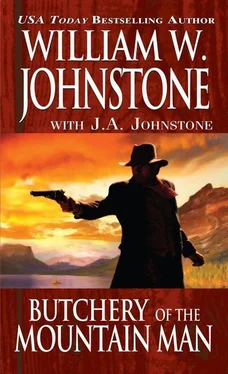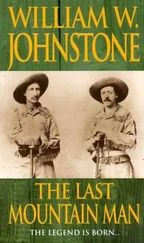“Good, thank you.”
“But tell me, Mr. Jackson, is the training and service really as difficult as they say?”
“Yes, especially the training to be hungry,” John replied.
“I beg your pardon? Training to be hungry?”
“The legion embraces the philosophy that if you want soldiers to fight hungry, you train them hungry. Breakfast might be watery coffee and a baguette, lunch a few pieces of ravioli and a pear.”
“I see. But somehow I get the idea that it wasn’t the rigorous training that caused you to desert. It couldn’t have been. They don’t award medals to those who aren’t up to the rigors of training,” Dempster said.
“No, it wasn’t the training that drove me away. It was the killing.”
“The killing? But, Mr. Jackson, you recently came through the Civil War. Surely there wasn’t killing on such a scale among the Foreign Legion?”
“It isn’t the number of people killed,” John replied. “It is the reason they are killed. In the Civil War both of the competing armies had honor on their side. The men of the North and the men of the South thought they were fighting for the survival of their nation.
“France has no such honorable motive. France is fighting wars, not of liberation, or of survival. France is fighting wars of aggression . . . killing innocents so that the country may add to its empire. I saw that when I was in Indochina, and I have neither desire, nor intention to kill those who are defending their own homes and their own culture, merely to add to the glory of France.”
“I understand.”
“I’m not sure you do,” John said. “Had I not been there, to see for myself what was going on, I wouldn’t understand.”
“What are you going to do now?” the lawyer asked.
“I’m going west.”
“Texas? California?”
“No. To the mountains.”
“You have to have more in mind than simply going to the mountains, Mr. Jackson. You have to have some idea of how you are going to support yourself.”
“I’m going to become a fur trapper.”
“Surely, sir, you jest. Have you ever read about such men?”
“I have.”
“And that appeals to you?”
“It does.”
Dempster shook his head. “Mr. Jackson, I wish you luck. Because I am absolutely certain that you are going to need it.”
[ The Rocky Mountain fur trade is the catalyst for one of the most interesting and influential periods of America’s movement west. The fur trade as well as the mountaineers who conducted it have caught the American fancy. This subject has probably received more attention, scholarly and popular, than any other phenomenon of the history of the previous century, with the obvious exception of the Civil War. The literature dealing with the mountain men is voluminous and detailed. They are unique in our history: pathfinders and trailblazers, not by design, but simply because they had a need to go from one place to another. They were men who were possessed of common sense, bravery, and coolness under trying conditions. They were noted for the ability to shoot straight, ride hard, fight ferociously, to withstand numbing cold and blistering heat. They were blissfully unaware of their unique qualities, considering them simply a matter of survival.—ED. ]
CHAPTER EIGHT
Old Main Building
“I wonder if, before you speak of your first meeting with John Jackson, you might tell us a little about Matt Jensen? I have read some reports that he is your son, other reports that he is your younger brother, and still other reports that he is of no kin at all. Yet, he does share your last name.”
“His birth name was Cavanaugh,” Smoke said. “He honored me by taking my last name, shortly after he left.”
“This was before you met John Jackson?”
“Yes. Matt was a fourteen-year-old boy when he ran away from an orphanage. I found him half frozen to death in the mountains and took him back with me. Once he recovered he stayed with me quite a while until he left to be on his own. He was with Preacher and me when we first ran across John.”
The Colorado Rockies—1869
Smoke and young Matt were with Smoke’s friend and mentor, a man who had never given anyone—and very few at that—anything more than his Christian name, Art. To his contemporaries and to history, he would always be known as Preacher.
“You two fellas hold it up there for a moment,” Preacher said, lifting his hand. He pointed to the top of some trees. “See them birds up there? The way they’re actin’?”
“Yes.”
“What does that tell you, boy?” Preacher asked Matt.
“They’re studying something that’s holding their attention pretty good,” Matt said.
“You think it’s a critter?” Preacher asked.
“No, I don’t think it is. The way they’re acting, I think it might be a man. Or men.”
Preacher chuckled. “Smoke, I’d say you’re learnin’ this boy pretty good,” he said.
“I had a pretty good teacher myself,” Smoke said.
“Yeah, I reckon you did,” Preacher replied. It wasn’t a boast; it was a statement of fact.
“I would tell you to loosen up that hog leg of yourn, but no need to. You can get it out fast enough, I reckon. Let’s the three of us ride on up there, but let’s do it real quiet.”
Smoke reached down to stroke his horse’s neck, then, with a slight pressure of the knees, urged him on.
Preacher, Smoke, and young Matt were approaching a break in the trees without making a sound. It was as if their mounts knew to be quiet, because their hoofbeats were but soft plops in the dirt, no breaking twigs, no rattle of crushing leaves.
Then, just before they reached the opening in the woods, the three heard a long string of curses from just ahead, and Smoke reached down to put his hand on his pistol, though he didn’t pull it. They rode a bit farther, then Preacher held his hand up. What they saw ahead of them was a man, probably fifteen years older than Smoke, trying to hold on to a wild turkey that had been caught in a snare. The turkey, with flapping wings and pecking beak, was fighting hard to get free.
“Grab him by the neck,” Preacher called to the man.
“I’m trying to grab him by the neck, but the bird apparently has his own ideas. He just won’t cooperate,” the man replied.
Smoke slid down from his saddle, hurried up to the man and the flapping bird, then reached up with his left hand to grab the turkey just under his head, while with the knife in his right hand, he cut the head off. The man who had been holding on to the bird dropped him, and the four of them watched the turkey flop around until, finally, it grew still.
“Well, it would be quite ungentlemanly of me not to invite you three gentlemen to help me eat this bird,” the man said.
“We appreciate the invitation,” Preacher said. “But who will we be eating with?”
“The name is Jackson. John Jackson. And who would you three be?”
“I’m called Preacher. This is Smoke. The boy is Matt.”
“You’re a man of the cloth, are you?” Jackson asked.
“Nope.”
“But you’re called Preacher?”
“Yep.”
Preacher’s monosyllabic responses were indications that he had no intention of explaining his moniker, and Jackson didn’t pursue it.
Without being asked, Matt picked up the turkey and began plucking it. Once the feathers were removed, he gutted it, then cleaned it in the nearby creek.
“You seem to be quite a capable young man,” John said.
“Smoke is bringing me along,” Matt replied.
All the while Matt had been cleaning the turkey, Smoke had been gathering wood, and now had a good fire going. He had made a pile of rocks in the middle of the fire, and the turkey, now quartered, was laid out on those rocks to cook.
Читать дальше












